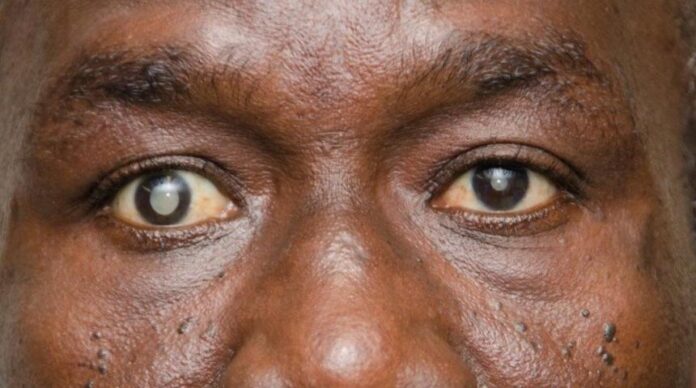The Liberian government unveiled its first national eye health policy in eight years on September 20, aiming to address avoidable blindness and vision impairment in the country.
The policy comes as Liberia’s eye health services and healthcare systems have been adversely affected by years of civil war, political instability, and a devastating Ebola outbreak. In 2020, approximately 480,000 individuals in the country were estimated to have experienced vision loss.
This initiative is particularly significant as Liberia has lacked a formal government-level direction for eye health since the expiration of its previous eye health policy in 2015.
The newly launched eye health policy, developed with support from the international development organization Sightsavers and Irish Aid, marks a crucial milestone for the nation’s health. It provides official guidance and commitments necessary for the reconstruction and enhancement of eye health services.

Balla Musa Joof, Country Director at Sightsavers, expressed congratulations to the government for taking this substantial step towards reducing the burden of vision impairment in Liberia. Joof emphasized the importance of collaboration with educational institutions, as addressing avoidable vision impairment from an early age enables children to learn and adults to earn. The positive impact of good eye health extends to individuals, families, and communities, ultimately contributing to the nation’s prosperity and the reduction of poverty and inequality.
Eye Health Policy
According to the release, the new policy aims to facilitate universal health coverage, ensuring that all individuals have access to eye health services without facing financial hardships. Priority areas include improving access to eye health services, particularly for people with disabilities, women, and remote communities, as well as training eye health professionals and enhancing their distribution across different regions.
Furthermore, the policy emphasizes the establishment of well-equipped eye health facilities, the implementation of robust health management information systems, the expansion of regional and community eye health services, and the integration of eye health into broader health and education systems.
Sightsavers has been actively involved in supporting eye health initiatives in Liberia for over 20 years and has contributed to the development of the new eye health policy. The organization is engaged in projects aimed at promoting inclusive eye health services, especially for women and individuals with disabilities, and training teachers to conduct basic vision screenings and administer deworming medication.
The policy was officially launched at an event organized by the Ministry of Health at the Golden Gate Hotel in Paynesville, just a few weeks ahead of World Sight Day on October 12. This announcement demonstrates positive action aligned with Sightsavers’ call for global leaders to recognize the importance of inclusive eye health.
The implementation of the new policy will bring about positive changes for individuals like Arthur, a young man from Bong County, who had been experiencing vision issues that affected his education. Through a school health project supported by Sightsavers, Arthur was diagnosed with a refractive error and provided with glasses. With improved vision, he can now see the blackboard clearly, resulting in better academic performance.
Balla emphasizes that progress has been made but emphasizes the need for continued efforts to ensure that eye health receives adequate representation in health planning, resource allocation, and funding. He calls for collaboration among the government and other stakeholders, emphasizing the importance of delivering universal health coverage. Strong coordination at the community, regional, and national levels is crucial to ensure that no one is left behind in terms of eye health.

